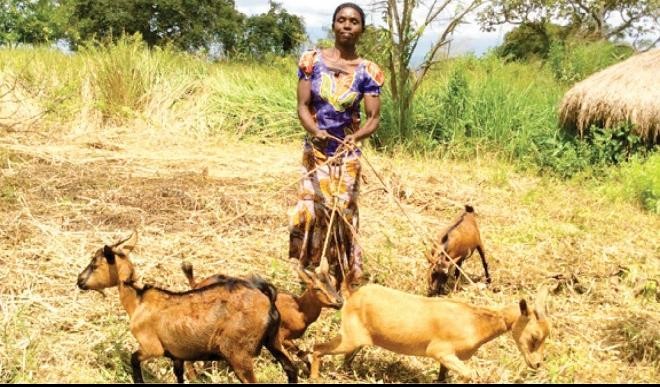How Katsina women benefit from goat breeding
For Ummi Sheraki, one of the many women in Katsina that benefited from the goat breeding empowerment scheme of the government, it is with joy that she welcomed the birth of two kids from the three goats that were given to her as loan. About 2,082 women across Katsina State have benefited from the facility […]


For Ummi Sheraki, one of the many women in Katsina that benefited from the goat breeding empowerment scheme of the government, it is with joy that she welcomed the birth of two kids from the three goats that were given to her as loan.
About 2,082 women across Katsina State have benefited from the facility at the rate of N50,000 per beneficiary. A total of N104 million was expended in the scheme.
Under the programme, each woman was given two she and one he goats valued at N50,000 to breed and repay within 13 months under an economic empowerment programme for women initiated by the state government through the state economic and empowerment department.
The money also includes insurance and medication for the goats for the period.
The women are not expected to repay the money in cash but with the offspring so that more women can benefit from the scheme.
When members of the Katsina local chapter of the goat breeders approached the state government for loan to facilitate the expansion of their goat business, the administration saw an avenue it could key into to help more women across the state and choose to expand it to the 34 local areas of the state. In each ward, under the programme, three women were selected and provided with the goats to rear and repay with the offspring.
The government’s decision to key into the business was not only informed by its plan to empower women but also as an avenue to resuscitate its abandoned tannery in Daura and meet the processing company’s demand in Katsina.
This idea, alongside plans to begin the export of N1.5 MMT of meat to the Middle East, was welcomed as not only a way to boost the financial capacities of the women but that of the government as well. It is a win-win situation.
According to the Special Adviser on Economic Empowerment to the governor, Abdulkadir Nasir, the lofty idea of empowering women with the special goat breeds from Maradi was because of their high reproduction and high quality of milk and meat.
He said the breed was carefully chosen by the institute of small ruminants in Niger Republic having studied and found them capable of reproducing three offspring twice a year and a litre of milk daily.
Perhaps Sheraki’s joy knew no bounds as she could now repay with the goats and continue to reap from what remained hers.
Also, another woman, Hadiza Matazu’s, goat was able to record a birth even though she encountered some challenges which led to the death of the he-goat but the office quickly replaced it at no additional cost since it was covered by insurance.
For Aisha, it is almost time to free herself from the debt as she has returned one to her cooperative which stood as guarantor for securing the goats.
A specialist in breeding and owner of D-Farms in Katsina, Musa DanHassan, said the idea was an excellent one that could be used to empower women especially given the fact that rearing goats was highly economical and a lucrative business if taken seriously.
He said, goats were highly resistant to disease and produced good milk that could be used for feeding as it has been adjudged that goats had one of the most nutritious milk.
He advised government to sustain the scheme and ensure that it was not politicised to enable those with genuine interest in goat rearing to benefit, especially women.
